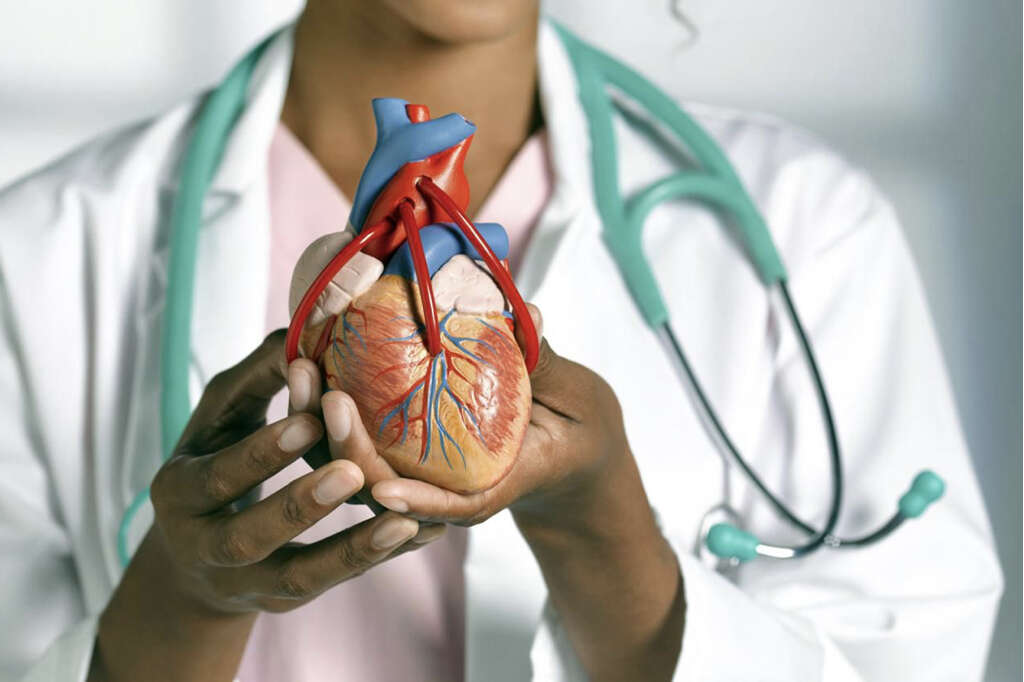Leaky Heart Valve Symptoms
Our hearts are one of our most valuable organs in that, without them, we would have only seconds to live. They are used all day, every day, and we count on them being fully functional all of the time. If something was to go wrong, then it can impact our health even if it does not kill us.
A leaky heart valve is a relatively common condition that affects the ability of the heart to function at full capacity. It is not necessarily a dangerous condition and many people will not even be aware that they have it. Regardless, a problem with the heart is always something that should be given all due attention.
1. Heart Valves
Our heart beats have two main phases. First, the two smaller chambers (atriums) fill with blood and then contract to force the blood into the larger chambers (ventricles). The muscles of the ventricles then contract to force blood into other parts of the circulatory system.
In order to be able to push our blood around our bodies, the heart’s muscles will need to contract quite powerfully to generate enough force. With the kind of forces involved, valves are used to help ensure the blood is pushed in the right direction. If something was to go wrong with these valves then the heart might not operate as well as it should.
2. Four Valves
Our hearts have four valves. They are the tricuspid valve, the pulmonic valve, the bicuspid (mitral) valve, and the aortic valve. The tricuspid valve is so named because it has 3 flaps that open and close as the heart beats, whereas the bicuspid valve has two flaps. Both of these valves have the job of closing shut when their respective ventricle chamber closes. This prevents blood from flowing back into the atriums.
The pulmonic valve and the aortic valve will remain closed, preventing blood from the pulmonary artery and the aorta flowing back into the ventricle chambers. When the ventricles contract, increased pressure in the chambers will force blood through their respective valves and into the rest of the circulatory system.

3. Leaky Heart Valves
Right after the heart chambers contract, the valves in the heart are forced closed under the pressure generated inside the chambers. This helps prevent blood from flowing backwards through the system, helping to ensure the blood is always forced to flow in the right direction.
A ‘leaky’ heart valve means that the valves are not working as well as they should be, and some blood is allowed to travel backwards through the system. This, in turn, means that the heart is not able to perform at 100% capacity, and this can result in a number of unwelcome symptoms for the patient.
4. No Symptoms
In most cases, the amount of blood that is able to flow back through the system is minimal. This means that, in many cases, the patient will not feel any adverse effects of the condition and will not be aware they even have a leaky valve.
In fact, a leaky heart valve is quite a common condition and even many sportspeople will have one. It is not even uncommon for people to have more than one valve that’s leaky without being aware. In some cases, a leaky heart valve is only detected when the patient is being examined for something else.

5. Breathlessness
Depending on how much blood is leaking back through the system, a leaky heart valve will cause symptoms in some people. One of these symptoms is the feeling of breathlessness. When the heart is not operating at 100% then blood is not being pumped around as efficiently as it should be.
This, in turn, will mean that the body will not be getting all the oxygen that it needs. This will cause the patient to feel as though they are short of breath, and they may begin breathing harder in order to compensate. The patient will experience this more when lying flat, and after exertion.
6. Lightheadedness
Our brains need a lot of oxygen to keep them working at their full capacity. If, for whatever reason, there is not enough oxygen being pumped to the brain then this can cause the patient to become lightheaded. Thus, lightheadedness is a symptom that some people with a leaky heart valve will experience.
Our body’s cells also need oxygen in order to metabolize so, with insufficient oxygen, there will not be enough energy in the body. This will, in turn, make the patient feel lethargic. Fatigue can be caused by a number of potentially serious conditions so it is a symptom that should be checked out.

7. Edema
The heart does a pretty good job at keeping the blood flowing, especially when it is helped by gravity as it flows downwards. When it reaches the bottom of the circuit, however, it needs to start going back up again, and this can cause problems.
If the heart is not working at full efficiency then there may not be enough pressure to help it back up again. There is a system of valves that help keep the blood flow going upwards but, still, there is sometimes not enough pressure to push the blood back up again. As a result, fluids can begin to pool at the patient’s feet and ankles in a condition that is known as edema.
8. Rapid Heartbeat
Our bodies always need oxygen regardless of what we are doing, so our heart will be steadily pumping away even when we are at rest, and when we are sleeping. When we are moving, our bodies will begin to use up more oxygen. This means that our heart will have to work harder to deliver it.
When our hearts are not working at 100% efficiency, they will need to work harder in order to make up for the deficit. This, in turn, means that people with a leaky heart valve will sometimes have a rapid heartbeat. They might also sometimes experience heart palpitations.

9. Diagnosis
As mentioned, many patients will not experience any symptoms and they can go throughout their lives without being aware of the condition. If the patient is showing symptoms, however, then medical professionals will want to conduct tests to help them understand what the problem is.
One of the most common methods is to use a well-known piece of medical equipment, the stethoscope. This will help the doctor to hear what is happening with the heart better. In many cases, an echo-cardiogram, which is a type of ultrasound, will also be used to get an accurate picture of what is happening in the heart.
10. Treatment
In most cases it is not necessary to have a leaky heart valve treated, and it probably won’t even be diagnosed. If it is diagnosed and no treatment is recommended, the doctor may still recommend an annual check-up to check on the health of your heart, and your overall health.
When treatment is recommended, it is usually achieved through medication. In more severe cases where medication is not sufficient, surgery may be recommended. In some instances, this can mean having the faulty valve removed and replaced with an artificial one. Of course, the treatment will be recommended according to the severity of the condition and the threat it poses to the patient’s health.











